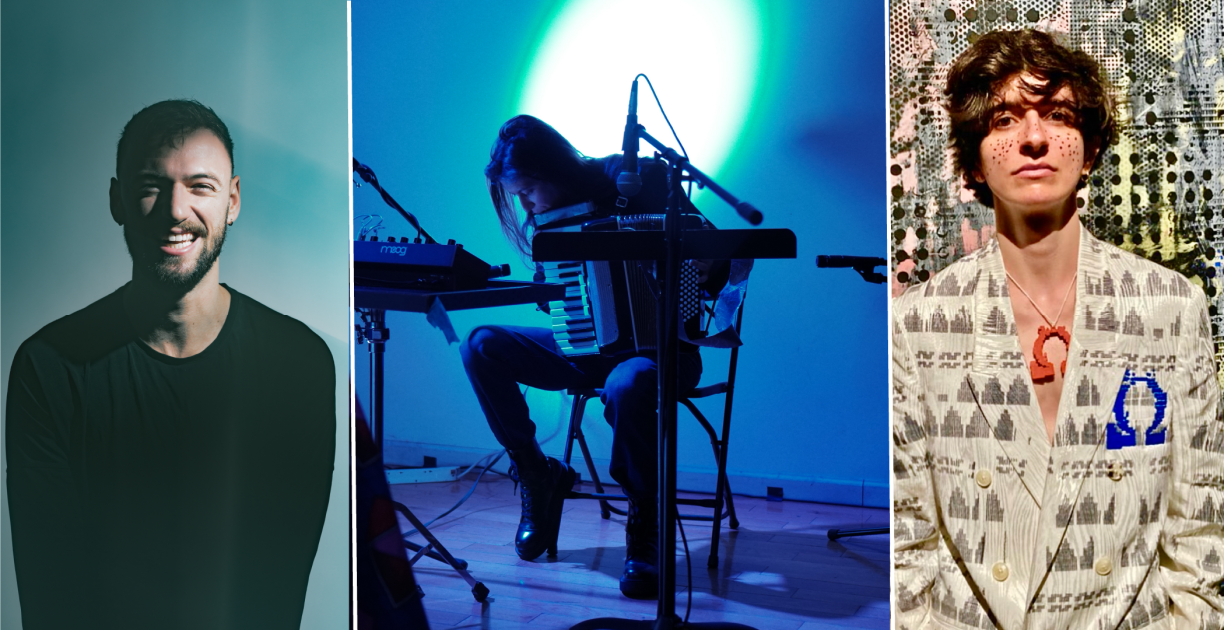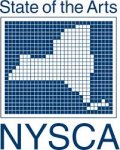Wednesday, June 29th, at 8pm ET, 2018 Suzanne Fiol Curatorial fellow and collective Queer Trash are thrilled to present new work from composer and multi-instrumentalist Lucie Vítková, performance artist Gabe Rubin, and butoh dancer Will Atkins. Queer Trash return to present three performances that expand, disturb, and pervert notions of the human body spanning performance art, experimental composition, movement, and rope suspension.
Tickets to this performance are $20 including two free drink tickets.
The evening begins with Gabe Rubin singing as the character “Pusskin,” a púca (shapeshifting spirit from Celtic folklore) who takes the form of a cat. “Pusskin” will perform original and adapted works on the piano, interspersed with cheeky ramblings.
Lucie Vítková premieres a new version of their recent work Transition, a solo performance about spaces in between, wandering without a goal, and traveling without destination. A “transition” is interdisciplinary. It is between different materials and instruments and between different bodily imaginations. A prototype of the piece was performed during the Invocation series at the IRL Gallery in February 2022. This iteration of the piece continues to work with the idea of transition, expanding deeper into conceptions of identity and the spatial characteristics of The Invisible Dog Art Center.
Will Atkins presents “outside, looking in,” a movement piece incorporating butoh and rope suspension exploring the interpersonal connection with ourselves and each other.
Gabe Rubin is a multidisciplinary artist who often performs as anachronistic and creaturely characters. GR explores the psychoacoustic and hormonal nature of vocal production across musical theater, folk and classical ballad, and Panto. GR’s films have been screened at the Brooklyn Film Festival and the MIX Queer Experimental Film Festival. He has performed in Shelley Hirsch’s Book-Bark-Tree-Line for Blank Forms, in Jill Kroesen’s Collecting Injustices at the Whitney Museum of American Art, as well as featured in Soraya Zaman’s trans-masculine photo series American Boys, published by Daylight Books. Together with Felix Bernstein he is represented by David Lewis Gallery in New York. Their work has been presented at Wexner Center for the Arts, The Kitchen, Luma Westbau, Reena Spaulings, the Drawing Center, and MOCA Los Angeles.
Lucie Vítková is a composer, improviser and performer (accordion, hichiriki, synthesizer, harmonica, voice and dance) from the Czech Republic, living in New York. During their studies of composition at Janáček Academy of Music and Performing Arts in Brno (CZ), they have been a visiting scholar at Royal Conservatory in The Hague (NL), California Institute of the Arts in Valencia (USA), Universität der Künste in Berlin (D), Columbia University in New York (USA) and at the New York University. Their compositions focus on sonification (compositions based on abstract models derived from physical objects) while in their improvisation practice Lucie works with characteristics of discrete spaces through the interaction between sound and movement. In Lucie’s recent work, they are interested in the social-political aspects of music in relation to everyday life and in reusing trash to build sonic costumes and instruments. They have been nominated for 2017 Herb Alpert Awards in Arts in the category of Music, were commissioned by the Roulette Intermedium in 2017 and have become a Roulette resident artist in 2018. They have put together two ensembles – NYC Constellation Ensemble (focused on musical behavior) and OPERA Ensemble (for singing instrumentalists). In their dissertation Compositional Techniques of Christian Wolff and Social Aspects in Music, which was published in 2021, Lucie has analyzed music of Christian Wolff, researching compositional techniques which change relationships between players to reform established hierarchies in music.Lucie’s teachers and collaborators include George Lewis, Suzanne Cusick, Ellie Hisama, Miya Masaoka, Petr Kotík, Hitomi Nakamura, Teerapat Parnmongkol, Jolana Havelková, Muyassar Kurdi, Haruhiko Okabe, Jaroslav Šťastný, Teodora Stepančić, James Ilgenfritz, Stevie May, and Graham Haynes.
Will Atkins is a NYC based actor & performer. Heavily inspired by his movement practices, Will creates body based performance work, incorporating elements of butoh, movement, BDSM, shibari rope bondage, hook suspension, and body modification. In 2021 he created a visual project “L’école Buissonnière,” which was featured by Kaltblut Magazine. In 2019 he premiered his butoh solo La Sangre, winning Best Experimental Piece at the United Solo Awards. He is a trainer at a movement gym teaching the Ido Portal method. Will also works with the Anchors Aweigh body hook suspension team, where he collaborates as a practitioner and performer.
Queer Trash was founded by Michael Foster and Richard Kamerman in spring, 2016. Active participants in experimental music scenes in New York City, Foster and Kamerman created Queer Trash in response to a lack of a dedicated queer platform within their communities. Queer Trash was ISSUE’s 2018 Suzanne Fiol Curatorial Fellow, and has hosted many events at different locations throughout New York City, presenting both local and touring artists from as far as Mexico and Sweden working across experimental aesthetics and practices. A participant in the fifth Queer Trash, Eames Armstrong joined Queer Trash in July 2017 as the third curator of the series after six years of organizing visual and performance art in Washington, D.C.. Currently, Eames Armstrong has stepped back to focus on other projects.


